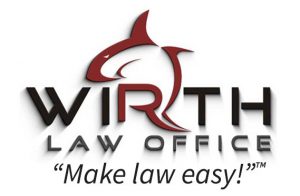Contact Wirth Law If You Have Any Legal Questions Concerning Your Case.
Video Transcribed: A couple of weeks ago, there was a Supreme Court decision. It made all the news. It was called McGirt, and it primarily dealt with Eastern Oklahoma, specifically, all the five tribes.
Tahlequah Criminal Attorney Ryan Cannonie with the Wirth Law Tahlequah law office, and I want to talk to you a little bit about how McGirt could impact your case. Well, the first thing is there’s a lot going on with McGirt.
I just recently came over from prosecution and I can tell you that the state and the tribes and feds are all trying to work this out, and even they don’t have all the answers yet. A lot of attorneys have been posting and advertising all these grand promises, but in reality, McGirt is very specific to a certain situation, and so that’s what I want to talk about today.
McGirt, as I’ve talked about in other videos, dealt with just the Creek Reservation. It dealt with a man who was convicted of child molestation. Supreme Court looked over his case, said that the state did not have jurisdiction to charge him.
Now the reason for that is this federal law called the Major Crimes Act, and in the Major Crimes Act, there are certain types of crimes that can only be charged federally or through a tribe if the defendant is a Native American member or if the victim is a Native American member.
 There’s a list of them. I had to write them down, so let me read through them. If either the victim of the crime or the accused perpetrator of it is on a crime for murder, manslaughter, kidnapping, rape, child sexual abuse, incest, assault against a child under the age of 16.
There’s a list of them. I had to write them down, so let me read through them. If either the victim of the crime or the accused perpetrator of it is on a crime for murder, manslaughter, kidnapping, rape, child sexual abuse, incest, assault against a child under the age of 16.
Child abuse may mean child neglect, assault and battery, arson, burglary, robbery, larceny over a thousand dollars, domestic assault and battery by strangulation or assault and battery with serious bodily injury.
Any of those crimes, if you are a CDIB, enrolled member of a tribe or the victim was, then if you were already convicted of it, then there’s a pretty good chance you can get your conviction overturned. You can, a lot of times, get that expunged.
Now there’s going to be kind of a cost benefit to this because just because the state could not prosecute you doesn’t mean the tribes or the federal authorities will not.
However, there’s a lot to consider on this. Look at statute of limitations, meaning how long ago something happened. Can they still file? Will they still file? What evidence was there? The federal government takes a little bit of a different stance on what they file compared to the state DAs’ offices do.
If you have questions about this, if you or a family member are in a situation where either they are possibly serving time right now or they had a probation sentence and want to try to get this off their record, maybe even get out of prison, then you need to give us a call. Talk to us. We can help. There’s a whole bunch of different things that can be filed in these cases.
But one thing to kind of watch out for is people making a ton of promises about how McGirt is going to cure all your ills and all harms on it. There’s a lot of people out there talking about all these things that could happen and some might happen, some might not. We’re still kind of new into it.
However, looking at the decision itself, if it’s one of these specific crimes I just read off and you’re in one of the five tribes, Cherokee, Chickasaw, Creek, Choctaw, and Seminole, then it would probably apply to you, so give us a call.








